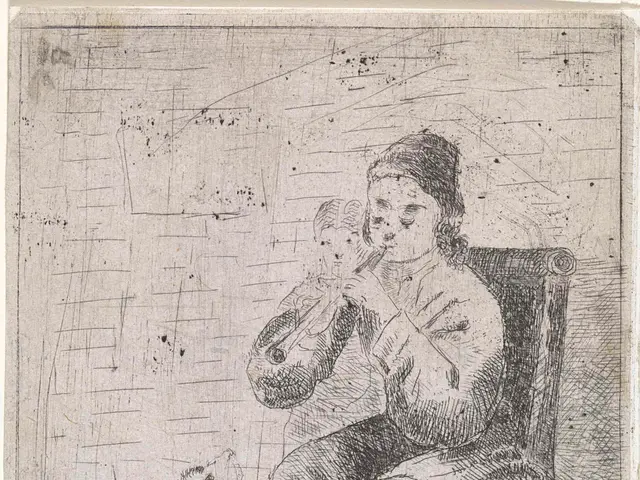Chris Koney's Opinion Piece: The Role of the 2023 Grammys in Shaping Africa's Music Sectors' Prospects
The music world went ablaze with the grandest night in Afro tunes, brimming with glamour, surprises, and lots of glitter! Africa's finest took the red carpet by storm, showing their radiant side to the world.
Tems, draped in a custom Viviane Westwood evening gown, etched her name in history as the first female Nigerian artist to win a Grammy award, grabbing her Best Melodic Rap Performance win alongside American rappers Future and Drake for their hit collaboration 'Wait For U'. With this win, Tems adds another feather to her already impressive cap.
South African comedian Trevor Noah was put in charge of keeping the audience entertained and orderly during the ceremony at Los Angeles's Crypto.com arena. Ghanaian singer-songwriter, Rocky Dawuni, brought along his beautiful daughter, Safiyah Dawuni, to celebrate his nominated single 'Neva Bow Down' featuring Jamaican Blvk H3ro. Despite missing this year's Best Global Music Performance, Rocky remains a force to be reckoned with in the music world.
Two-time Grammy-nominated musician Yola attended the award show for her work in the 2022 musical/drama hit Elvis. South African trio Wouter Kellerman, Zakes Bantwini, and Nomcebo Zikode showed up to snag this year's Best Global Music Performance award for their hit single 'Bayethe'. The trio's win set the Internet ablaze, stunning everyone as they beat Africa's Giant, Nigerian artist Burna Boy.
Always turning heads with her fashion sense, Doja Cat, the 'Woman' songstress, donned a black leather look by Versace. Nominated for multiple categories, Doja Cat shone bright on the grand stage.
Ugandan singer Eddy Kenzo proudly waved his country's flag as the first Grammy nominee from Uganda. Although he missed this year's Best Global Music Performance award for his track 'Gimme Love' with American rapper Matt B, we are more than certain that Eddy Kenzo will return with a vengeance.
After all the sequins, extravagant gowns, and glitter, one might wonder, what's next for Africa's music industries? The focus is on collaborations - between artists and businesses alike - that will fuel Africa's music industries to new heights of growth.
During the NY:LON Connect conference, it was elaborated on how these partnerships will catapult the African music scene into even greater success. African music is becoming more vital, more central to the world music scene, and more central to the global music industry. Although revenues haven't caught up to the potential yet from a global perspective, the growth and possibilities are undeniable.
Recorded music revenues in sub-Saharan Africa grew nearly five times faster (+22.6%) than the global average in recent years[3][4], with Afrobeats and its modern offshoots like Amapiano being the dominating genres in countries such as Nigeria. The continent's music is gradually shifting perceptions, transforming the image of Africa from negative stereotypes to one defined by vibrant culture and artistic innovation.
As more international collaborations and remixes spark communities of fans across the world, the demand for African music is on the rise. The African music industry is poised for continued growth, with a young, growing population and increasing digital access driving the market [2]. The proliferation of streaming platforms and digital distribution channels is enabling African artists to reach global audiences more efficiently than ever before.
Awash in hard-hitting beats and rhythmic rhythms, African music is carving its path in the global music landscape. We can't wait to see it unfold!
- The African music industry anticipates further growth, with a focus on business collaborations that will propel it to unprecedented heights, as discussed at the NY:LON Connect conference.
- As the global demand for African music surges due to international collaborations and remixes, the market for African music is poised for continued expansion, fueled by a young, growing population and expanding digital access.
- In the wake of the success of genres like Afrobeats and Amapiano, recorded music revenues in sub-Saharan Africa have experienced significant growth, shifting perceptions of Africa and showcasing its vibrant culture and artistic innovation to the world.








